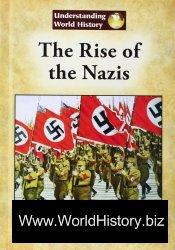The late 1950s and the early 1960s marked the end of the great decolonizing wave of the first two decades of the post-World War II era. The outbreak of the Algerian war for independence against France, the Mau Mau rebellion in British Kenya, and Ghana’s independence in the mid-1950s ushered in the beginning of what would become a flood of postcolonial states in Africa and the Caribbean. As many as seventeen formerly colonial African states gained independence by 1960. Others would follow in the early 1960s, as would Trinidad and Tobago, Jamaica, and Guyana. In 1959, Cuban revolutionaries led by Fidel Castro triumphed and their assertive anti-imperialism and calls for
Revolutionary social and economic change became an inspiration for radical movements not only in Latin America but throughout the global South.
Cold War rivalries shaped these developments in critical ways, inspiring American efforts to overthrow Congolese prime minister Patrice Lumumba in 1960 and Cheddi Jagan’s government in Guyana in 1964, prompting Soviet support for Castro’s increasingly Marxist regime in Cuba, and motivating the Chinese to provide loans and advisers to newly independent African states. But countervailing currents, including legacies of imperialism and the interwar anticolonial struggle along with others new to the postcolonial era, served to limit the impact of the Cold War and circumscribed the actions of the superpowers in the global South.
The pan-African movement of the first half of the twentieth century continued to exert considerable power over African decolonization. Nkrumah, the vigorous leader of independent Ghana, had been active in local and transnational anticolonial politics since the 1930s, and he advocated a strong pan-Africanism designed to assist independence movements and to foster solidarity among postcolonial African states. In 1958, in the spirit of Bandung, he helped convene an All-African People’s Conference. It urged African states to close ranks against superpower Cold War politics and tried to promote mutual assistance in social and economic development. Subsequently, the overthrow and murder of Lumumba in 1961 accelerated the pan-African project. Lumumba had been a committed pan-Africanist, and the culpability of the United States in his death reinforced local and regional pressure for African unity. By establishing the Organization of African Unity in May 1963, pan-Africanists sought to institutionalize their transnational movement, but subsequent splits in the organization would diminish its regional impact.
Tensions with client states complicated superpower efforts to direct and manage the processes of decolonization and postcolonial state-making. In South Vietnam, the Eisenhower administration lavished money on the Ngo Dinh Diem regime in the late 1950s, lauding Diem as the "miracle man" of Southeast Asia. But with the rise of urban discontent against Diem’s regime and a heightened Communist insurgency in the early 1960s, US policymakers increasingly worried about his refusal to take American advice and direction. In supporting the coup that led to Diem’s murder in 1963, however, they ushered in a period of escalating chaos. Likewise, in the aftermath of the Cuban Missile Crisis, Castro backed away from his close relationship with the Soviet Union. Along with Che Guevara, he launched a competitive global campaign for influence with radical independence movements in Latin
America and Africa.752 And, at much the same time, the Sino-Indian border war complicated Chinese efforts to lead a united front of decolonizing states. Several years later, during their cultural revolution, the shrill insistence of Chinese leaders on the primacy ofMaoist models abroad frayed their ties with many of the states and movements in the global South, whom the Chinese had so assiduously courted earlier in the decade.
Finally, the wave of decolonization in Africa and the Caribbean brought with it even larger forces that none of the superpowers could fully contain and control. As Matthew Connelly has argued, the Algerian war unleashed a "diplomatic revolution" that fundamentally challenged the state-based scaffolding upon which the Cold War international order rested. In part, this was the result of the Algerian liberation movement, the Front de Liberation Nationale, assuming the attributes and legitimacy previously accorded only to states. This shift in perception of the power and significance of liberation movements contributed to the increasing importance of the African National Congress in South Africa, al Fatah in the Palestinian diaspora, and similar groups in Angola and East Timor in the international politics of decolonization after 1962. The diplomatic revolution of the postcolonial moment, Connelly argues, went even deeper. The wider processes of decolonization - population growth, environmental scarcities, supranational institutions, new media forms, and the conscious agency of colonized peoples to promote radical systemic change - severely weakened the Cold War system even at the height of superpower confrontation, and ultimately gave shape to the post-Cold War world.753
After 1962, the dynamics of the Cold War would continue to play a powerful role in the global South. Soviet, American, and Chinese intervention in postcolonial state-making took an increasingly intrusive and militarized turn, first in Vietnam and later in Angola, Mozambique, Ethiopia, Central America, and Afghanistan. As the leaders of the first wave of decolonization, such as Nehru, Ho Chi Minh, Nasser, and Nkrumah, passed from the scene, a generation of more militant local actors emerged - some radical such as Antonio Neto in Angola and Daniel Ortega in Nicaragua, others deeply conservative such as Augusto Pinochet in Chile or Joseph Mobutu in
Zaire - whose worldviews heightened levels of confrontation and repression among and between states and peoples in the postcolonial world.
"The wars fought in the Third World during the Cold War," writes Odd Arne Westad, "were despairingly destructive." The violence and terror of war, and the authoritarian regimes of the Right and of the Left that emerged in their wake, destabilized and sometimes devastated many local societies. Significantly, if depressingly, the end of the Cold War has done little to ameliorate conditions. As Westad notes, when the Cold War ended fewer than one in four of the world’s population lived in areas with improving standards of living; today, that number is fewer than one in six.754 In Africa alone, per capita gross national product is now lower in some states than it was in the 1970s, and poverty, famine, HIV/AIDS, genocide, and predatory regimes crush people’s hopes for a minimum standard of wellbeing.
The present moment, like decolonization itself, remains rooted in the complex interplay of the imperial, the postcolonial, and the Cold War. This constellation of historical forces, however, offers not only burdens but also opportunities. From the interior and intimate spaces of the family to the national visions of postcolonial leaders, new and often radical calls for more just, equalitarian, and humane societies have emerged. Anticolonial and postcolonial thought, with its rich and fluid nature, reaches beyond the boundaries of the nation and imagines transnational and global spaces in which its larger emancipatory project can be advanced. The present moment, therefore, contains the possibility of realizing the vision of a world in which social equity and justice prevail as naturally as inequality, poverty, and war.




 World History
World History









